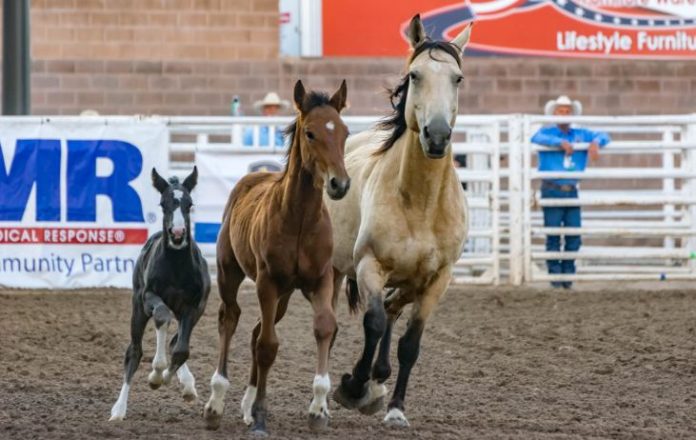Foaling is when a horse gives birth to a young horse. By knowing some simple facts and being prepared the whole experience will be less stressful for you and your horse.
The normal gestation length for horses averages about 340 days. The actual number of days can be more or less depending on the breed of horse and size of the fetus.
There are a number of things to look for that can help tell you about when the horse will foal. About two to six weeks prior to foaling the udder will start to swell, and about four to six days prior to foaling the teats will start to fill. This is all done in anticipation of having to feed the foal.
Also, about two to four days prior to foaling you will see waxing. This is just very thick milk sticking to the tips of the teats.
Two to four weeks prior to foaling you will also see the muscles and ligaments around the vulva relax. This relaxation of the ligaments is caused by a hormone the horse releases called Relaxin. This hormone helps to make the birth canal larger so the foal can pass through easier.
When is gets down to the day of foaling the horse will become more anxious. The horse typically shows signs of colic and will likely stand up and lay down a lot. The horse may also raise its tail and make frequent attempts to urinate.
After the foal is born it should be able to stand within one hour, and start nursing in two to four hours. Also the first meconium should pass within six hours. It these events don’t proceed as planned, call your veterinarian immediately.
In preparation for foaling you should keep a few basic supplies handy. Keep a flashlight handy because horses tend to foal at night or in the early morning. Iodine solution should also be kept to dip the foal’s navel in.
Also for the mare you should have some Vetwrap hand to wrap the tail up to keep it clean during the foaling process. A bucket of soap and water should also be kept to clean the vulva prior to foaling to help prevent infection.
Finally be sure you have the phone number of your veterinarian handy in case you need to call him.
By knowing what to expect during foaling and by keeping a few basic supplies handy you and make whole process less stressful for you and your mare.

